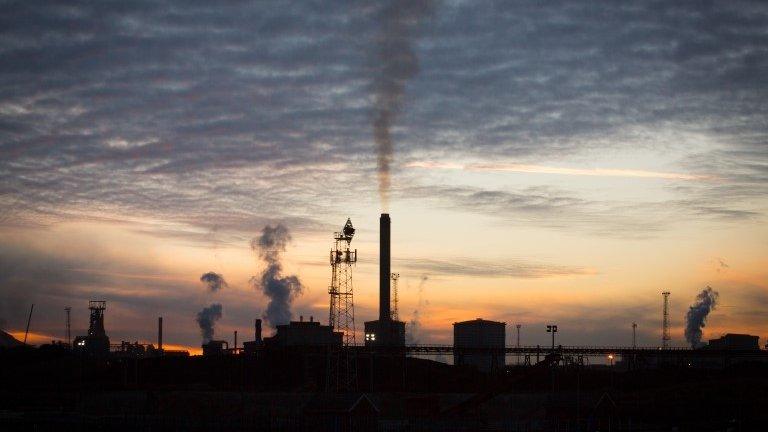Ministers 'blocking higher Chinese steel tariffs'
- Published
UK Steel policy chief Dominic King said the European Commission "didn't really have the teeth" to deal with the issue
UK ministers were among the "ringleaders" blocking higher tariffs on Chinese steel, the body representing the UK steel industry has told AMs.
UK Steel policy chief Dominic King also accused the EU of saying to Chinese producers "please dump here".
In January, Tata announced it was cutting 750 steel jobs in Port Talbot, out of more than 1,000 going in the UK.
Welsh Secretary Stephen Crabb said the UK government would continue to do "all it can" to help the industry.
Leading figures from the steel sector were giving evidence to the assembly's enterprise and business committee on Thursday.
'Wake up'
Mr King compared a new 266% tariff on Chinese coiled steel into the United States, with a 16% tariff for Chinese imports into the EU.
"We see the European Commission as not really having the teeth to deal with the flooding of Chinese exports into not just the UK, but Europe as a whole," he said.
"The UK has a perfect storm but the rest of Europe is starting to be hit as well."
Economy Minister Edwina Hart told the committee that unless tariffs on Chinese steel exports were increased "we won't have the luxury of talking about steel because there won't be steel".
"Europe's got to wake up and smell the coffee ... we've got to have an industry in Europe that produces for Europe," she said.
In February, the European Commission announced it was opening three investigations into steel products made in China, saying it would not allow "unfair competition" to threaten Europe.
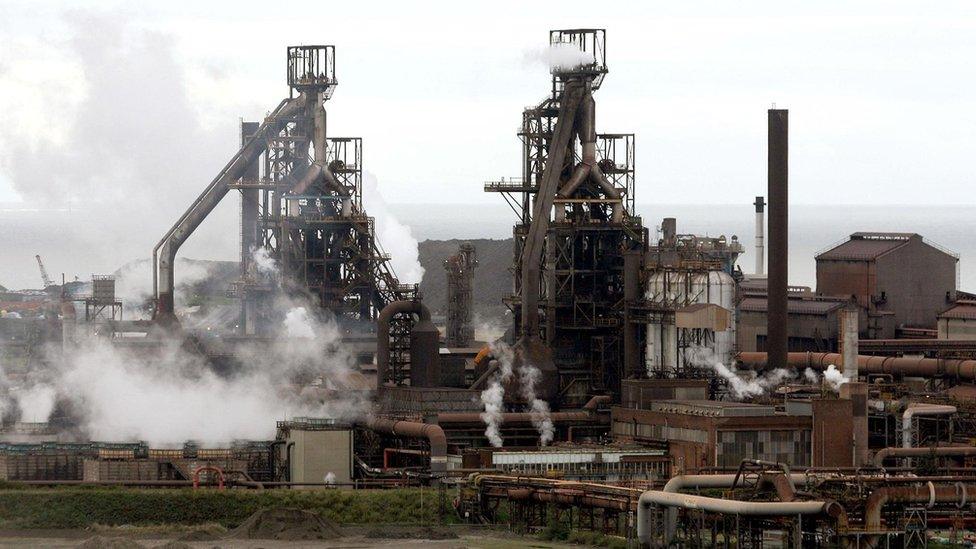
In relation to levels of UK government support, Chris Hagg, head of external affairs for Celsa Steel, which has a major operation in Cardiff, said: "It has taken them quite a long time to come to the party."
He welcomed the introduction of an energy compensation package from ministers at Westminster, but he also described delays by the Welsh government on changes to business rates as a "key concern".
Sanjay Tohani, director of Liberty Steel, which has re-opened a mill in Newport and is looking to create 1,000 jobs, said the outlook was "not particularly bright".
In written evidence to the committee, Welsh Secretary Stephen Crabb said: "The UK government has taken significant action in response to industry asks and will continue to do all it can in the coming weeks and months to ensure a healthy and sustainable future for the industry.
"There is clearly more to be done and I recognise this is a vital economic issue for Wales, and will continue to work closely with the Welsh government."

Analysis by Nick Servini, BBC Wales political editor
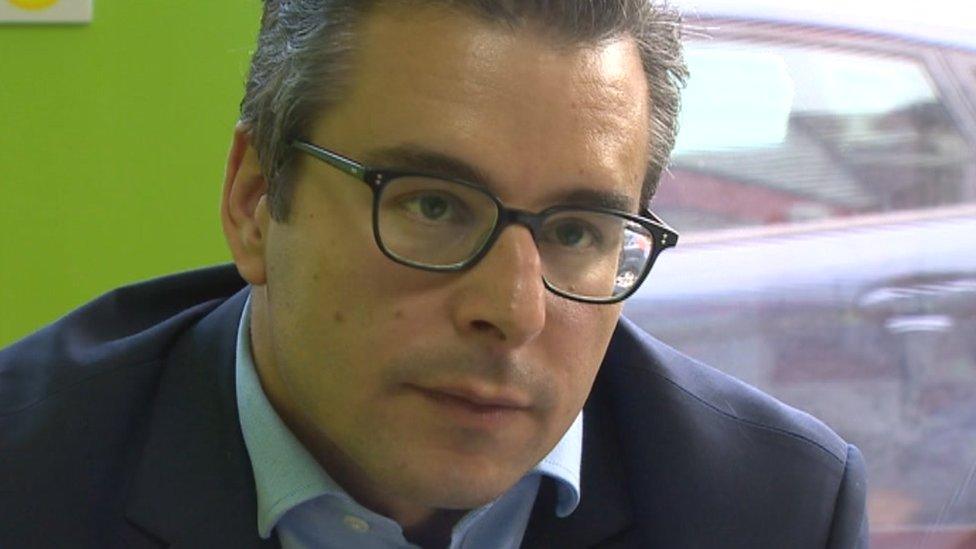
The committee may have been at the assembly but in reality the main issues under discussion had little to do with devolved politics.
At the heart of this is the attitude to trade tariffs.
The department for business at Westminster believes the EU could do more within the existing rules.
By way of defence, it says it voted in favour of anti-dumping measures twice last year and lobbied for the EU inquiry into cheap imports of reinforcing steel bar.
But the industry wants Britain to call for a more fundamental shift in attitude, or in the jargon scrapping the regulation called the lesser duty rule.
This is being resisted in Westminster because of fears that it could open the door to protectionism and retaliation from other countries: in other words a trade war.
- Published10 February 2016
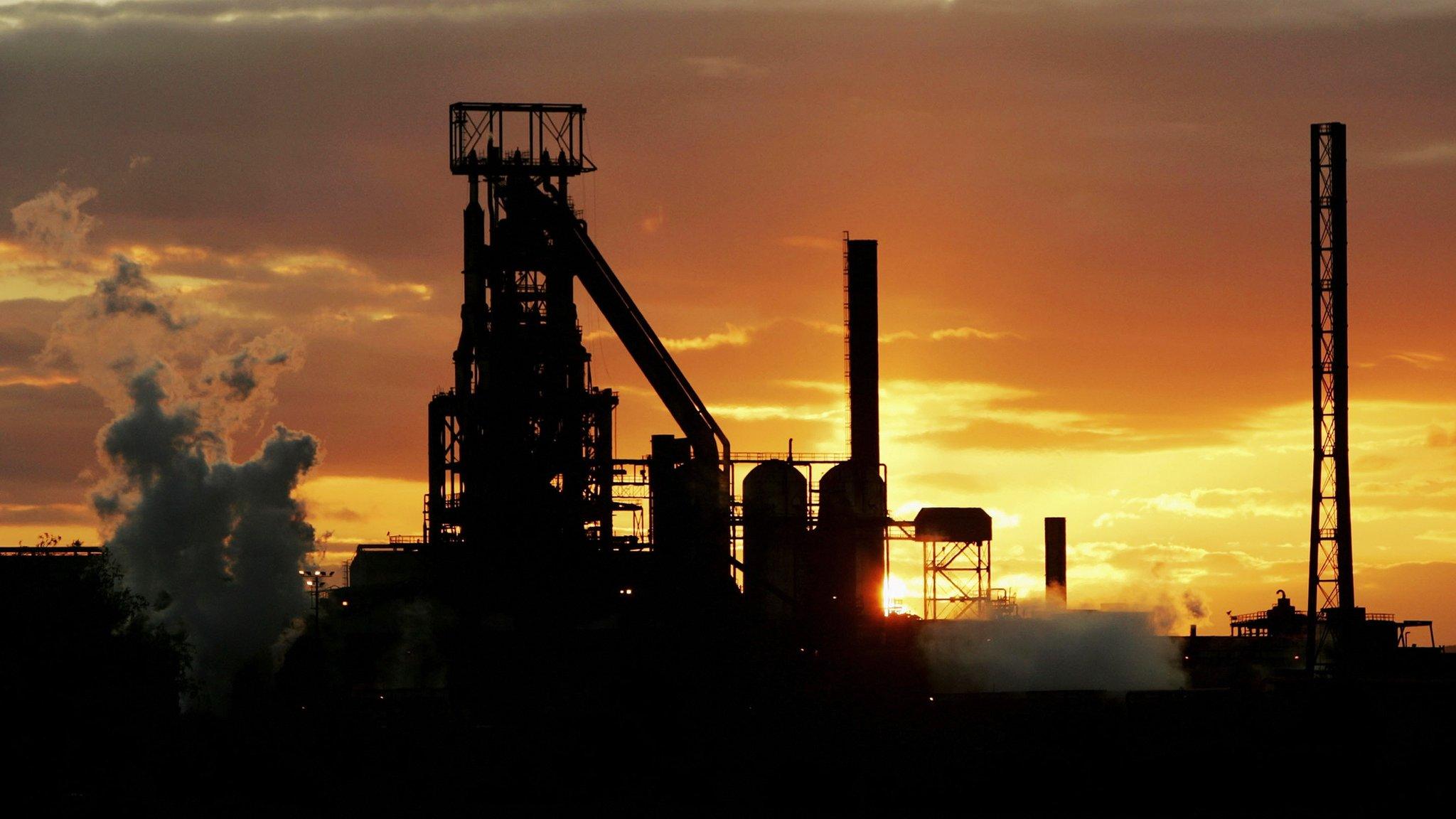
- Published18 January 2016
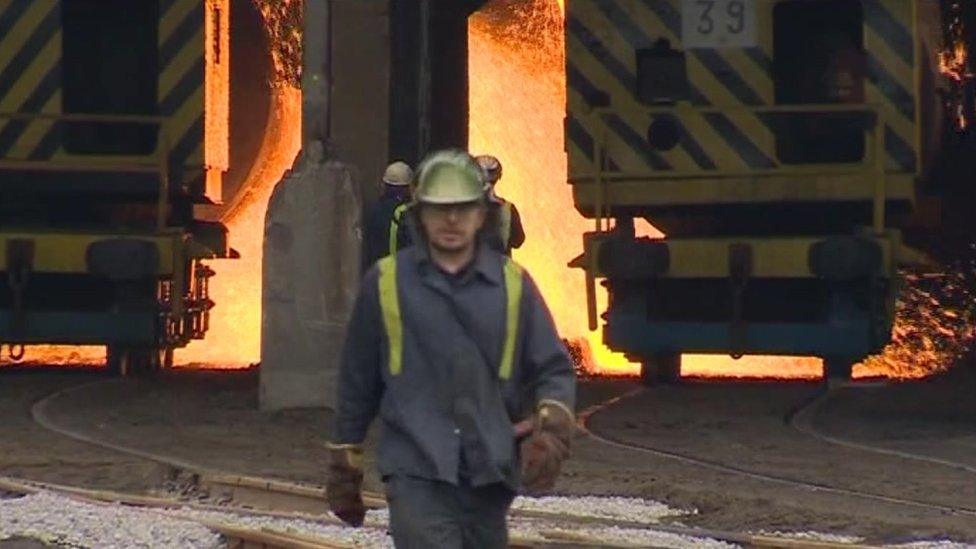
- Published11 January 2016

- Published19 January 2016
